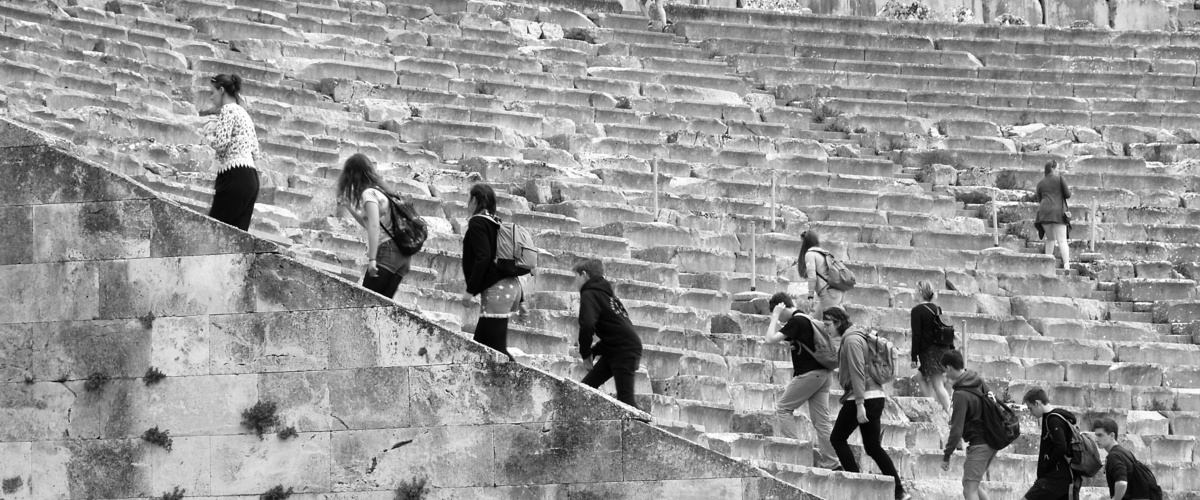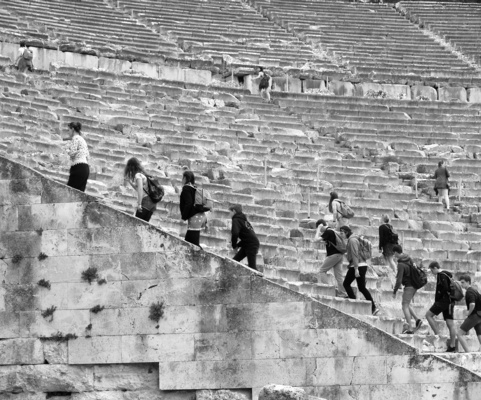Classics


- Home
- School Life
- Co-curricular and Enrichment Activities
- Year 11 Resources - Preparation for A Level Study
- Classics
A Level Classics Preparation for Year 11 Pupils
A Level Classics - Preparation for Year 11 Pupils
Classical Civilisation focuses on the civilisations of Greece and Rome, and is a wide ranging subject involving the study of ancient literature, art history, politics, philosophy and history. You don’t need to know any languages, all the literature is in translation. Most importantly it doesn’t matter if you haven’t studied the Greeks and Romans before, all you need is an interest in the ancient world and its cultures. UCL recognises Classical Civilisation as a facilitating subject and Cambridge recommends it for those interested in studying the arts and social sciences.
The A Level course covers three areas of the Classical World:
The World of the Hero concerns the works of Homer and Virgil, epic poets of the Greek and Roman world. The Iliad stands at the beginning of the Western literary canon, the greatest telling of the tragic and bloody climax to the ten-year war at Troy. Virgil’s Aeneid, a patriotic epic, written to honour the emperor Augustus, considers Aeneas’ journey to Italy, and the future foundation of Rome.
Culture and the Arts topic concerns the Greek art of the 6th–4th centuries BC. This side of the course develops visual analysis skills, in addition to literary skills involved in the World of the Hero topic. The sculpture and vase-painting of ancient Greece is viewed not only from an aesthetic perspective but also a mythological, historical and political perspective.
Beliefs and Ideas involves the consideration of the philosophical ideas and political ideals of the Late Roman Republic. One of the most exciting times in western history, it was a period of considerable political upheaval, which eventually led to a bloody civil war and the rise of the emperors. An exploration of three very different political figures from this period, Cato, Julius Caesar and Cicero, unveils aspects of this tumultuous, and significant, half-century of Roman history and politics.
All three A level papers encourage in-depth study of the Classical world, alongside some modern scholarship and more current academic publications.
A level pupils of all Classical subjects are encouraged to attend Colloquium, a fortnightly seminar-style gathering, at which pupils present to each other on matters from the Classical world, and are invited to enjoy foreign travel to a wide variety of destinations
A Level Latin - Preparation for Year 11 Pupils
A Level Latin Preparation for Year 11 Pupils
A Level Latin - Week 3 Reading Exercise
We follow the OCR A level courses in Latin. The subject comprises of four papers, all of which are taken at the end of the two-year course. Two papers focus on translation and comprehension skills; two papers concern prose and verse texts. Texts are read in the original language, alongside a wider selection of reading in translation, allowing for a greater and broader understanding of the historical and literary context in which such important texts were composed.
The Latin texts may include part of Cicero’s Pro Cluentio, the great orator’s defence of a man who is accused of poisoning his stepfather by his own mother. There may also be a historical text, by Livy, chronicling the early history of Rome and the despicable behaviour of Rome’s king, Tarquin the Proud. Some poetry will sit alongside this rhetoric and history, most likely Virgil’s Aeneid, Book XII, in which the poet brings to a dramatic conclusion his poem on the foundation of the Roman people. There are few ‘endings’ more controversial in western literature.
